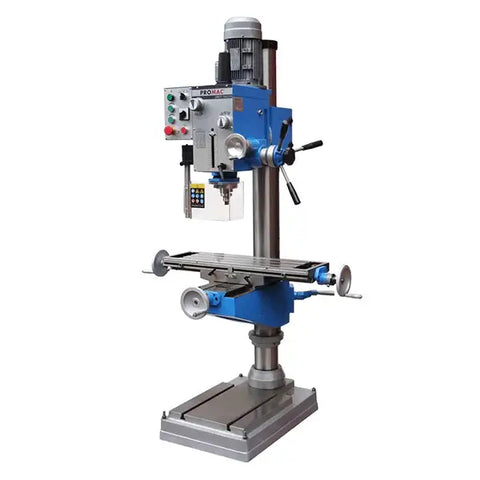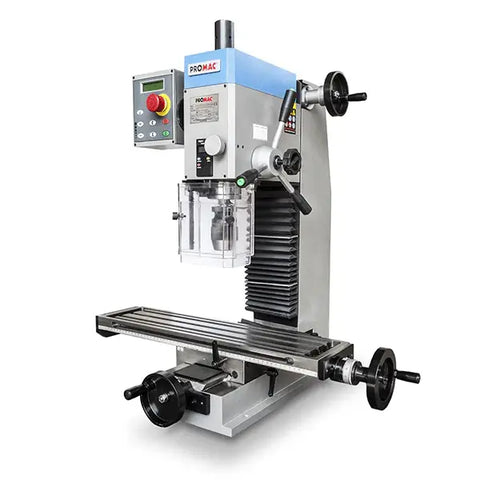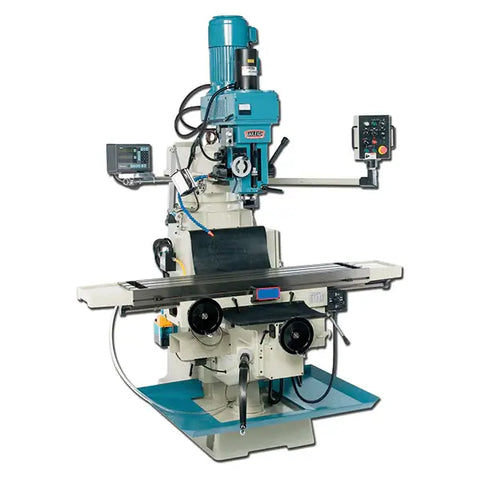
Milling Machine Uses Explained
Welcome to our guide on milling machine applications, the importance of milling machines, and their functionalities. In this article, we will explore how milling machines are utilized in various industries, why they are considered indispensable, and the specific features that make them a crucial tool in precision machining.

Key Takeaways:
- Milling machines have diverse applications across industries.
- Their importance stems from their ability to perform precise machining operations.
- Milling machines offer various functionalities to cater to different manufacturing needs.
- Efficiency and flexibility are inherent advantages of using milling machines.
- They significantly contribute to the overall productivity of industries worldwide.
Understanding the Versatility of Milling Machines
Milling machines are incredibly versatile tools that offer a multitude of benefits across various industries. Whether you're involved in metalworking, woodworking, or even fabricating intricate parts, the advantages of using a milling machine cannot be overstated.

Diverse Benefits of Using a Milling Machine
- Accuracy and Precision: Milling machines provide exceptional control and precision, allowing for the creation of complex and intricate designs with utmost accuracy.
- Efficiency and Productivity: These machines enable high-speed cutting, resulting in increased productivity and reduced production time.
- Versatility: Milling machines can perform a wide range of operations, including drilling, boring, slotting, and threading, making them suitable for various machining tasks.
- Cost-effectiveness: By streamlining the machining process and minimizing manual labor, milling machines help reduce production costs.
Types of Milling Operations
Milling machines can perform several types of operations, each serving a specific purpose:
- Face Milling: Used for creating flat surfaces on a workpiece.
- End Milling: Ideal for cutting slots and producing intricate profiles.
- Peripheral Milling: Involves cutting the outer edges of a workpiece.
- Drilling: Performed to create holes in a workpiece.
- Boring: Used to enlarge existing holes with precision.
The Importance of Milling Machine Cutting Tools
The selection of cutting tools plays a crucial role in the performance of milling machines. The right cutting tools can enhance efficiency, precision, and overall productivity. Common types of milling machine cutting tools include:
- End Mills: These versatile tools are used for various milling operations and can be found in different shapes and sizes.
- Face Mills: Ideal for facing large surfaces and producing flat finishes.
- Drill Bits: Crucial for creating precise holes in a workpiece.
- Slotting Cutters: Specially designed for cutting slots in a workpiece.

Features and Specifications for Different Industries
Milling machines come with a range of features and specifications that cater to the specific requirements of different industries:
- Powerful Motors: Ensures efficient cutting even with tough materials.
- Variable Speed Control: Allows for adjusting the cutting speed based on the material being machined.
- Automatic Tool Changers: Streamlines the machining process by automatically changing cutting tools, reducing downtime.
- Advanced Computer Numerical Control (CNC) Systems: Enhances precision and automation in the machining process.
With their versatility, precision, and efficiency, milling machines find applications in industries such as automotive, aerospace, construction, and electronics. These machines are indispensable for manufacturing components, shaping materials, and achieving the highest standards of quality and accuracy.
Conclusion
In summary, milling machines play a vital role across a wide range of industries due to their versatility and precision. These machines excel at performing intricate machining operations, making them an indispensable tool in manufacturing and fabrication processes.
With their impressive range of features, milling machines offer a high degree of efficiency and flexibility. They can effortlessly create complex components and shape various materials with utmost accuracy. This level of precision contributes significantly to the overall productivity of industries worldwide.
From aerospace and automotive to electronics and medical equipment, milling machines find extensive applications in diverse sectors. Their ability to deliver precise results consistently sets them apart from other machining tools. As technology advances, we can expect even more sophisticated milling machines that further enhance productivity and improve the quality of finished products.

